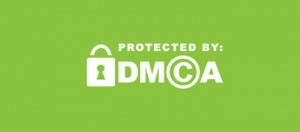Articles Tagged with youtube
When It Comes to the DMCA, a Red Flag Becomes Harder to Fly
 It is unlikely that when Stephanie Lenz posted a home video of her children dancing to Prince’s “Let’s Go Crazy” on YouTube, she could have anticipated that, nearly a decade later, she would be seeking U.S. Supreme Court review in connection with that video. In Lenz v. Universal Music Corp., Ms. Lenz sued Universal Music Corporation for taking her video down from YouTube pursuant to a takedown notice sent to YouTube. That was in 2007. Universal claimed that the video violated their copyright in the “Let’s Go Crazy” song. As we previously discussed, the takedown notice is a provision in the Digital Millennium Copyright Act (DMCA) that allows copyright holders to require a service provider, like YouTube, to “expeditiously” remove copyright-infringing content in order to avoid any liability for the infringement. Critics of this provision complain that it is often abused by corporate copyright holders to unjustifiably take down content that might otherwise constitute fair use. Ms. Lenz sent a counter notification to YouTube claiming fair use, and the video was subsequently reposted weeks later. Nonetheless, Ms. Lenz sued Universal for misrepresentation based on a little used provision of the DMCA and sought a declaration that her use was non-infringing. That provision, or Section 512(c)(3)(A)(v), requires that for the takedown notice to be effective, the copyright holder must have a “good faith” belief that use of the content is not authorized by the copyright holder, its agent or the law.
It is unlikely that when Stephanie Lenz posted a home video of her children dancing to Prince’s “Let’s Go Crazy” on YouTube, she could have anticipated that, nearly a decade later, she would be seeking U.S. Supreme Court review in connection with that video. In Lenz v. Universal Music Corp., Ms. Lenz sued Universal Music Corporation for taking her video down from YouTube pursuant to a takedown notice sent to YouTube. That was in 2007. Universal claimed that the video violated their copyright in the “Let’s Go Crazy” song. As we previously discussed, the takedown notice is a provision in the Digital Millennium Copyright Act (DMCA) that allows copyright holders to require a service provider, like YouTube, to “expeditiously” remove copyright-infringing content in order to avoid any liability for the infringement. Critics of this provision complain that it is often abused by corporate copyright holders to unjustifiably take down content that might otherwise constitute fair use. Ms. Lenz sent a counter notification to YouTube claiming fair use, and the video was subsequently reposted weeks later. Nonetheless, Ms. Lenz sued Universal for misrepresentation based on a little used provision of the DMCA and sought a declaration that her use was non-infringing. That provision, or Section 512(c)(3)(A)(v), requires that for the takedown notice to be effective, the copyright holder must have a “good faith” belief that use of the content is not authorized by the copyright holder, its agent or the law.
The Value of Terms Limits: YouTube’s Broadly Defined TOS Does the Trick
Frequent readers of our blog will recall that in prior posts on companies such as Uber, Ashley Madison and Twitter, we have stressed the importance of having a robust terms of service (TOS) agreement. In many instances, TOS, if adeptly deployed, can limit a social media or gaming company’s liability to its users. We now see that TOS can also effectively limit the remedies available to these potential plaintiffs.
Continue Reading →
Google Gives Fair Use on YouTube a Fighting Chance
Last month, Google announced a groundbreaking policy that may help shift the balance of power between copyright claimants and those who upload YouTube videos that may be covered by fair use. According to Google’s Public Policy Blog, users upload more than 400 hours of video every minute. Those uploads sometimes make use of existing video or music clips in new and transformative ways. When uploads transform the original work in this way (such as a parody or critique), it adds social value beyond the value contained in the original work. In the United States, a transformative use is considered a fair use and exempted from copyright infringement liability.
 Internet & Social Media Law Blog
Internet & Social Media Law Blog



